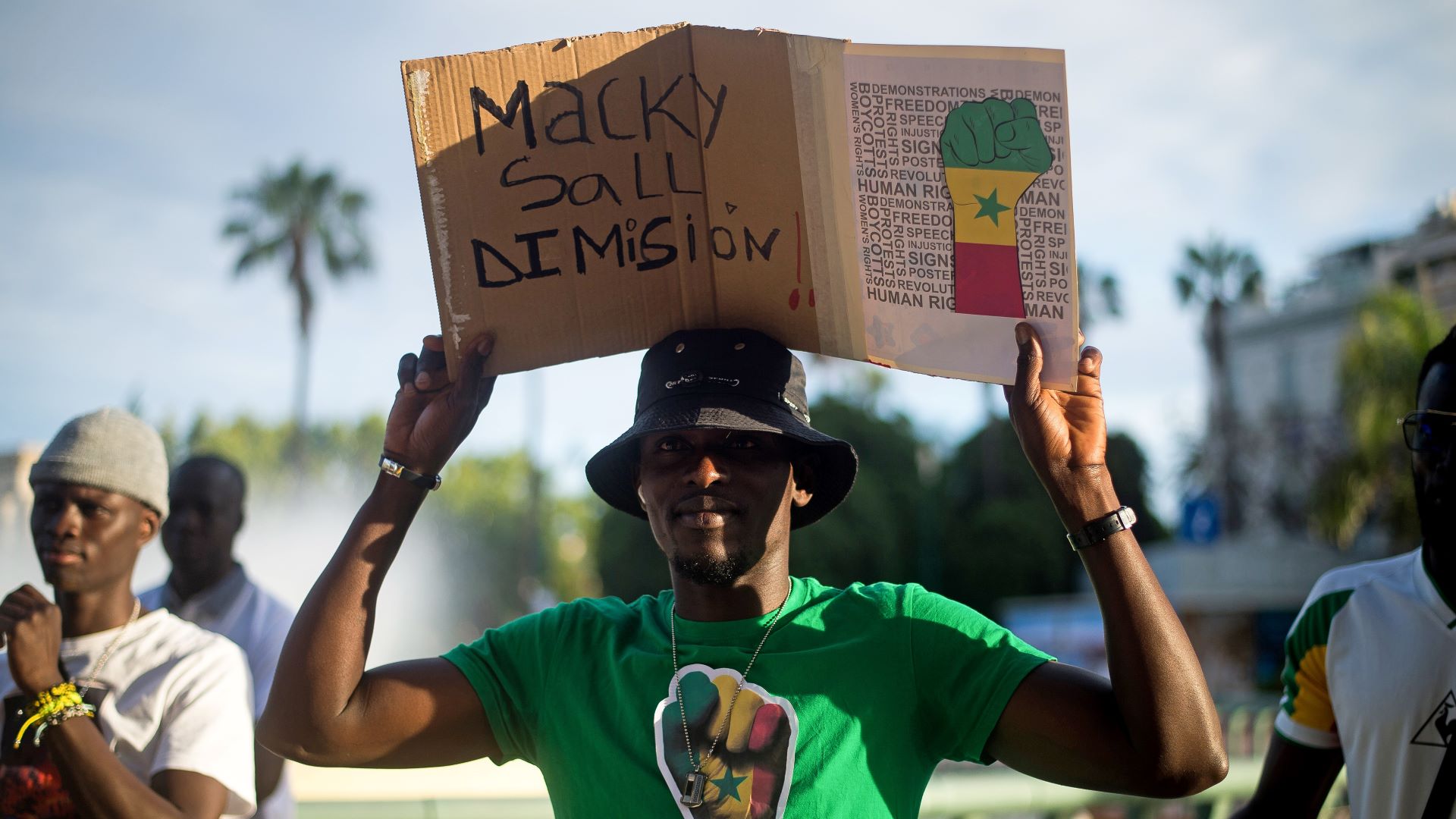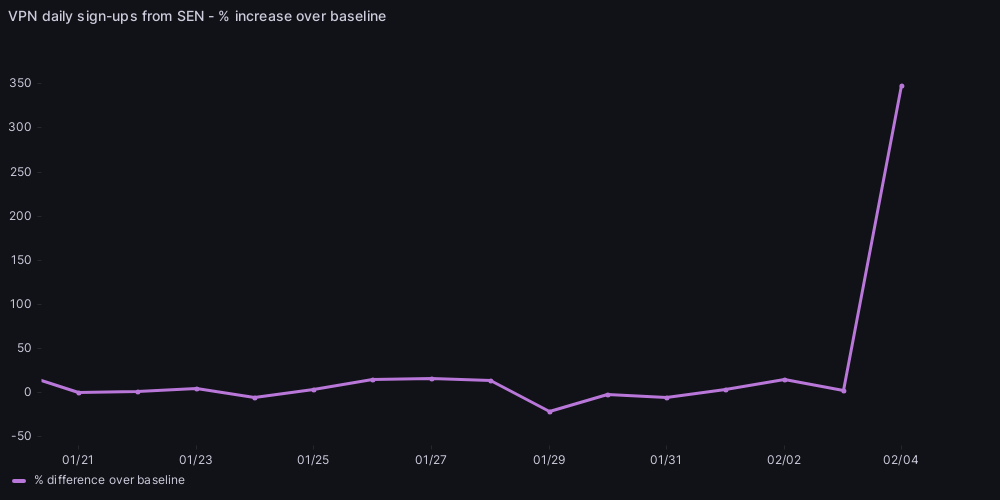VPN usage soars in Senegal as authorities restrict internet—again
Disruptions come amid protests over postponed elections

People in Senegal have been turning to VPN services as authorities clamp down on the internet in a new wave of shutdowns.
The move comes after protests erupted across major cities to demonstrate against President Macky Sall’s order to put off the presidential elections scheduled for February 25, 2024.
Speaking to TechRadar, Proton VPN confirmed a 350% increase in VPN sign-ups, above normal levels, starting on Saturday, February 4. According to the provider, the spike might indicate that citizens are preparing for future censorship.
A VPN to stay connected
"So far we haven’t seen reports of internet censorship specifically," Antonio Cesarano, Head of Product at Proton VPN told me.
"This is notable since most spikes come in response to censorship. In this case, people are getting ready in advance (following past internet blocks by the Senegalese government) showing that public knowledge of VPNs as an anti-censorship tool is spreading."
Short for virtual private network, a VPN is security software that both encrypts internet connections and spoofs the user's IP address. The latter ability is exactly what grants citizens access to the open internet when facing blocks, restrictions, and censorship.

Internet watchdog, NetBlocks, reported restricted mobile internet access in Senegal's Capital, Dakar, on Monday, February 5. Disruptions occurred while the Parliament was voting for extending the President's mandate, whose term was expected to terminate on April 2, 2024.
Get daily insight, inspiration and deals in your inbox
Sign up for breaking news, reviews, opinion, top tech deals, and more.
The government said the measure is to "prevent threats and disturbances to public order" following the "dissemination of several hateful and subversive messages" online. Yet, experts are raising concerns of yet another strike on citizens' rights to access to information in the country.
"Internet shutdowns leave journalists struggling to report the news in a timely manner, to fact check misinformation, and to contact sources safely," tweeted the Committee to Protect Journalist on X, calling authorities to immediately restore internet access.
The broadcasting of popular independent TV channel Walfadjri was also throttled in what Reporter Without Border deemed a "worrying abuse of power."
⚠️ Confirmed: Traffic data show mobile internet access has been limited in #Senegal as president Macky Sall’s government orders the restriction cellular data in capital Dakar to prevent "threats and disturbances to public order" amid protests over the postponement of elections 📵 pic.twitter.com/coneTCezvaFebruary 5, 2024
Senegal—once thought to be the best democracy within the region—has been backsliding when it comes to digital rights.
Last year, authorities cut mobile internet and access to the most popular social media platforms in June. The block occurred as citizens took to the streets over the sentencing of opposition leader Ousmane Sonko. A month later, there was a second wave of internet censorship when Sonko was formally charged. Many Senegalese believe this was just a ploy to prevent him from running for the elections that are now postponed.
Proton recorded a 2,800% increase in signups within the country following July's restrictions. In June, the spike was even bigger: a 100,000% increase in downloads as people tried to access blocked social media platforms.
Despite the most recent spikes being lower in percentage terms, Cesarano explains that that's because there was a larger number of existing users following June's connectivity blackouts.
Put simply, more and more Senegalese have learned they need a secure VPN app that's ready to use at all times. Senegal's cyber-resistance is also aware that it needs to be able to fight against disruptions as soon as they're enforced.
Disclaimer
We test and review VPN services in the context of legal recreational uses. For example: 1. Accessing a service from another country (subject to the terms and conditions of that service). 2. Protecting your online security and strengthening your online privacy when abroad. We do not support or condone the illegal or malicious use of VPN services. Consuming pirated content that is paid-for is neither endorsed nor approved by Future Publishing.

Chiara is a multimedia journalist committed to covering stories to help promote the rights and denounce the abuses of the digital side of life – wherever cybersecurity, markets, and politics tangle up. She believes an open, uncensored, and private internet is a basic human need and wants to use her knowledge of VPNs to help readers take back control. She writes news, interviews, and analysis on data privacy, online censorship, digital rights, tech policies, and security software, with a special focus on VPNs, for TechRadar and TechRadar Pro. Got a story, tip-off, or something tech-interesting to say? Reach out to chiara.castro@futurenet.com